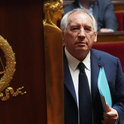Coronavirus has necessitated the greatest restrictions on liberty in our history. Two months in, those restrictions are only just beginning to be lifted. Handling the fallout and moving to the next phase and eventual recovery will all raise important questions for human rights. How do we protect the rights of vulnerable people and indeed the population at large?
One important voice in this discussion is Harriet Harman. Best known as a former deputy and acting leader of the Labour Party, as well as a ground-breaking feminist campaigner, Harman was also solicitor general and is now one of the most experienced figures in parliament: she is Mother of the House, having served for longer than any other female MP. In recent years she has also chaired the Joint Committee on Human Rights, which features members from the Commons and the Lords and is investigating issues such as the protection of vulnerable groups and digital privacy during the current crisis.
“We have been keeping a very careful eye” on the government’s commitment to human rights, said Harman when I spoke to her on the phone on Monday. There is “no need to trample on” them and we must wait to see what the government does. Still, they must be “careful not to breach” rights and if they do, “then surely there will be court cases” brought against them by campaigners or aggrieved parties.
As well as the fundamental right to life, the government response to this pandemic bears on “issues such as the right not to be discriminated against.” Then there are the general measures affecting the whole population: the lockdown regulations. “The important thing is to give the government the powers they need, but to make sure that there is careful monitoring of how these powers are being put into practice.”
In the first phase of the lockdown, individual police forces were criticised for misapplying the regulations. For Harman, “It's one thing to have a position in law, but quite another to see whether or not it's being properly implemented… as far as the police are concerned, the justice secretary did say to us that he felt the police had overstepped the mark in certain constabularies, and Northamptonshire in particular.” In one such instance, police chief Nick Adderley suggested that his officers could start to police the contents of shoppers’ trolleys.
How will the government safeguard rights more broadly going forwards? “We asked the Justice Secretary about this in an evidence session,” Harman explained. “He is the cabinet member responsible for human rights. How was he monitoring the situation? Basically he said he wasn't, and it was the responsibility of each cabinet minister to ensure that their departments comply with human rights. But I think actually it would be useful [for him] to take an active role monitoring and calling to account across government.”
One pressing rights issue is privacy and personal data. All the lockdown restrictions and economic hardship means that this is “probably the last thing on most people's minds,” Harman admitted. But the government now plans to roll out a voluntary contact tracing app to monitor and contain the spread of the virus, which would alert people if they have been in “significant contact” with other users who later report having symptoms. This raises signification questions over digital security. Harman’s committee has just finished a report on the subject.
“Under the pre-existing system” for digital privacy “there are really no proper protections for people's personal data,” said Harman, “but then you add to that new data, which includes details of your social contacts, and expect the existing failed regulatory system to protect it? It won't. And that's why we need a contact tracing human rights bill.” The committee has produced such a bill and is asking the government to adopt it. Drafted in part by Prospect contributor Adam Wagner, among other things it “defines the purpose for which data can be gathered… defines who can have access to it… sets up a Covid tracing app ‘privacy tsar’ who could independently monitor the system.” “It's very hard to see why [the government] would refuse to enshrine it in legislation unless really, they're not prepared to stick by their assurances” that the app will have adequate safeguards, argued Harman.
There is not much time in which to push this draft legislation through, but Harman said “I think that we could agree that between the pilot and rollout there’s enough time. Parliament showed that it could legislate very quickly to give the government the powers it needed for the emergency, so would be able to work equally quickly to give people the protection they need” in this respect. That protection is essential whatever the final version of the app looks like.
There are countless other rights issues raised by Covid-19. Another is how to protect young people in mental health detention, “who now don't get access to parental visits, and also there's no inspections. We found that even pre-Covid lockdown, they were vulnerable to abuse… so their rights were unprotected even under the previous situation, but now they are even more vulnerable… we're having an evidence session on Monday about that, and we'll come out with a report.” It is vital “to make sure that they don't fall prey to abuse.”
Harman was a campaigner for the Human Rights Act 1998, which enshrined the European Convention on Human Rights in domestic legislation. Of the freedoms guaranteed by the ECHR, “the most important is the right to life. And the next most important in a way is the right to freedom of movement, the next is privacy and the right not to be subject to inhuman and degrading treatment. It's perfectly possible for the government to take action [which cuts] across all of these... but they've got to take action which is proportionate.”
“So in order to protect lives, they have taken the action of lockdown,” Harman continued, “which restricts freedom of movement, but it's justified. In order to ease the lockdown, they're bringing out the contact tracing app, but they've got to do it in a way which protects privacy… so it's about balancing all these rights together.” And “it should be commitment to the principle” of rights “that drives them rather than fear of litigation. That's the last resort.”
The UK has a proud record on human rights. After all, it was British lawyers who helped to draft the convention in the first place. What a shame it would be now if we jeopardised our international reputation. The UK “has always championed [human rights] around the world, and we need to continue that,” said Harman.
Harriet Harman: we must keep “a very careful eye” on UK commitment to human rights
The Labour grandee and human rights committee chair on lockdown, contact tracing and the urgent need to protect vulnerable groups
May 12, 2020

Photo: Dominic Lipinski/PA Archive/PA Images












